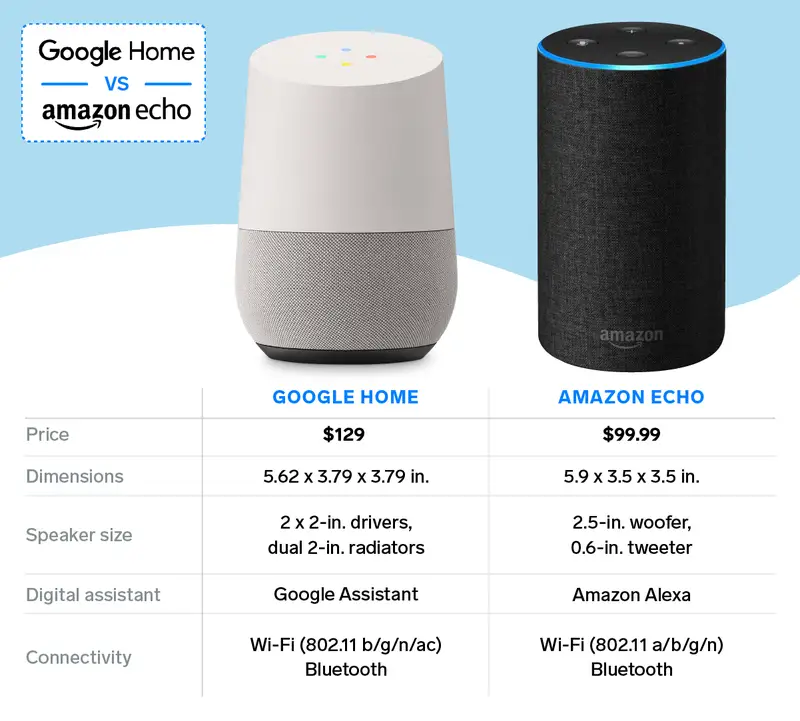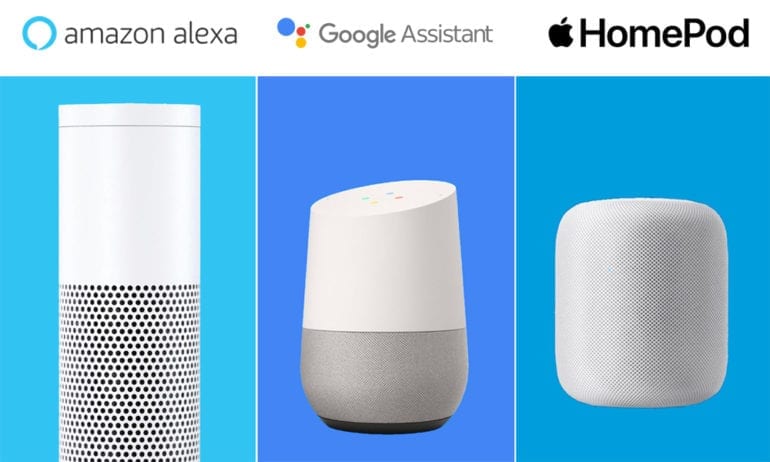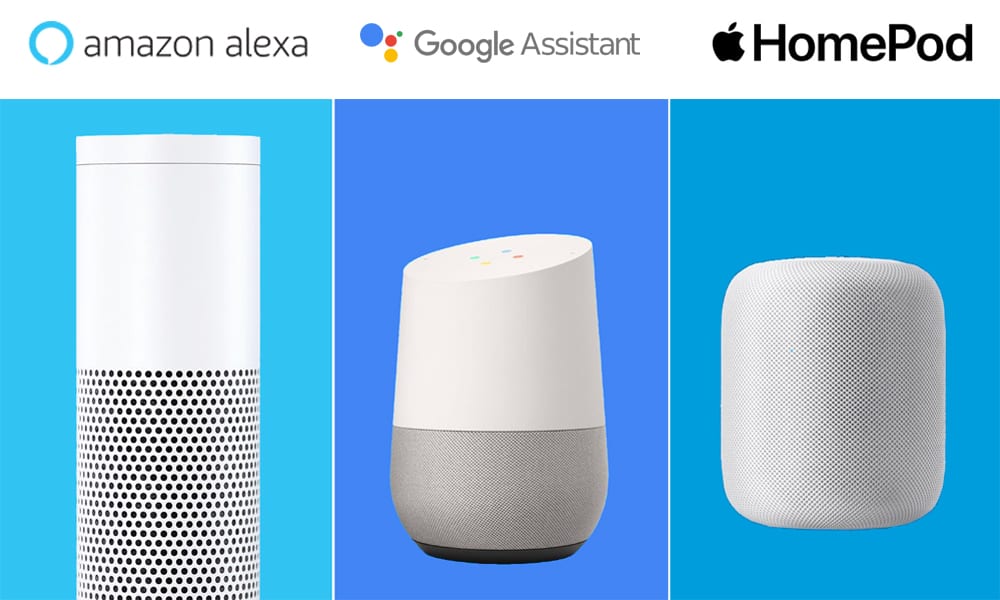Google Assistant and Google Home often confuse many. They seem similar but serve different roles.
Understanding their differences can help you decide which suits your needs best. Comparisons like Google Assistant vs Google Home are helpful for making informed decisions. They offer insights into features, benefits, and functionalities. Google Assistant is a virtual assistant. It helps with tasks through voice commands on various devices.
Google Home, however, refers to smart speakers and displays powered by Google Assistant. These devices control smart home features and play media. By comparing them, you can better understand which product fits your lifestyle. Whether you need a digital helper for tasks or a smart home controller, this comparison will guide you. Stay with us as we dive deeper into their key differences and unique offerings.

Credit: botpenguin.com
Introduction To Smart Assistants
Smart assistants have transformed how people interact with technology. Devices like Google Assistant and Google Home are now essential in many households. They understand commands, provide information, and even control other devices. These assistants simplify tasks and enhance living experiences.
Rise Of Smart Technology
Smart technology has rapidly evolved over recent years. It started with simple voice-activated gadgets. Now, it integrates seamlessly into daily life. People use smart assistants for various tasks. This includes setting reminders, playing music, and controlling smart home devices. These innovations have sparked interest worldwide.
Importance In Daily Life
Smart assistants are significant in everyday routines. They save time and effort. Users can check weather updates, manage shopping lists, or get recipe ideas effortlessly. This convenience is valuable for busy individuals. Smart assistants also enhance accessibility. They help people with disabilities navigate daily tasks with ease.

Credit: www.hellotech.com
What Is Google Assistant?
If you’ve ever asked your phone to set a reminder or play your favorite song, you’ve likely interacted with Google Assistant. It’s a voice-activated helper designed to make your daily tasks easier. But what makes it stand out among digital assistants? Let’s dive deeper into its core features and supported devices.
Core Features
Google Assistant is more than just a voice command tool. It can perform a variety of tasks, from sending texts and making calls to providing weather updates and controlling smart home devices. You can even ask it to tell you a joke if you’re in need of a laugh.
One of its standout features is its ability to understand context. If you ask, “What’s the weather like today?” and then follow up with, “What about tomorrow?”, it knows you’re still talking about the weather. This contextual understanding makes interactions smoother and more human-like.
Have you ever needed hands-free help while cooking? Just ask Google Assistant to read a recipe step-by-step. It’s like having an extra pair of hands, minus the mess. With continuous improvements, it’s getting smarter by the day.
Supported Devices
Google Assistant isn’t limited to just one device. It’s available on a wide range of gadgets, making it accessible in almost any setting. You can find it on smartphones, smart speakers, tablets, and even smart TVs.
If you own a Google Home device, you can control it with your voice using Google Assistant. Imagine walking into your house and saying, “Hey Google, turn on the lights,” and having it done instantly. It’s all about making life a bit more convenient.
For those who like to stay connected on the go, Google Assistant is also integrated into Android Auto. This means you can get directions, send messages, or play music without taking your hands off the wheel. Safety and convenience in one package.
So, have you tried using Google Assistant yet? Whether it’s for managing your schedule or controlling your smart home, it might just be the helping hand you never knew you needed. What would you ask your Google Assistant to do today?
What Is Google Home?
Google Home is a smart speaker that works with Google Assistant. It is designed to help you with daily tasks and provide entertainment. You can ask it questions, control smart devices, and play music. This device makes life easier and more fun.
Key Functions
Google Home can perform many functions to simplify your day. It answers questions, sets alarms, and provides weather updates. You can listen to music, podcasts, or audiobooks with voice commands. It manages smart home devices, like lights and thermostats. It can also place calls, send messages, and create shopping lists.
Device Compatibility
Google Home works with various devices to enhance your smart home experience. It connects with smart lights, speakers, and security cameras. It can sync with TVs, Chromecast, and smart thermostats. Compatibility with Google Assistant-enabled devices expands its functionality. This integration creates a seamless environment for you.
Comparing Features
When choosing between Google Assistant and Google Home, understanding their features can help you make the best decision for your needs. Both offer unique capabilities designed to enhance your daily life, but how do they stack up against each other in terms of voice recognition and app integration? Let’s dive into the specifics that could transform your home and digital experience.
Voice Recognition
Google Assistant shines with its advanced voice recognition technology. It’s designed to understand diverse accents and dialects, making it accessible to users worldwide. Have you ever asked a device a question only for it to misunderstand you completely? With Google Assistant, those moments are rare. You can engage in natural conversations, and it often feels like talking to a friend rather than a machine.
Google Home also offers reliable voice recognition, but it’s primarily focused on household commands. If you’re looking to control smart devices or play music, Google Home responds efficiently. However, its ability to handle complex queries might not be as robust as the Assistant. Have you considered how important voice recognition is in your daily interactions with technology?
Integration With Apps
Google Assistant is a powerhouse when it comes to integrating with various apps. It connects seamlessly with Google services like Calendar, Maps, and Gmail, providing a cohesive experience across your devices. Imagine asking your Assistant to remind you about a meeting or fetch directions without lifting a finger. How much time could that save you?
Google Home, while effective, tends to focus more on integrating with smart home devices. If your goal is to create a connected home environment, Google Home excels with its ability to sync with devices like lights, thermostats, and cameras. But if you’re prioritizing app connectivity, especially for work or productivity, the Assistant may be your better choice.
As you explore these features, think about which aspects align with your lifestyle. Do you value voice recognition and app integration for personal productivity, or is home automation more your focus? Choosing between Google Assistant and Google Home hinges on these considerations.
User Experience
Google Assistant excels in providing personalized voice commands, while Google Home focuses on controlling smart devices. Both enhance user interaction, but each serves different needs.
User experience is a crucial factor when choosing between Google Assistant and Google Home. Both promise to make your life easier, but how do they actually deliver on that promise? Let’s dive into the intricacies of their user experiences.Ease Of Use
The ease of use is a major selling point for both Google Assistant and Google Home. Google Assistant is versatile, living in your smartphone and ready to assist wherever you go. Its integration with multiple apps allows you to perform tasks like sending messages or setting reminders on the fly.Google Home, on the other hand, is a static device but excels in being the hub of your smart home. You can control lights, thermostats, and more with a simple voice command. Imagine walking into your home and having it greet you with the perfect lighting and temperature, all without lifting a finger.Which one aligns more with your lifestyle? If you’re always on the move, Google Assistant might be your go-to. But if you value a smart home environment, Google Home could be your best bet.Customization Options
Customization options can significantly enhance your user experience. Google Assistant allows you to personalize routines that cater to your daily habits. You can set up a morning routine that gives you the weather, news, and traffic updates as you get ready for the day.Google Home also offers customization but focuses more on smart home settings. You can create a nighttime scene that dims the lights and plays relaxing music. One night, I set up a cozy ambiance with my favorite playlist, and it felt like a mini-vacation right in my living room.Do you prefer tweaking your digital assistant’s capabilities or customizing your living environment? Your answer might sway you toward choosing one over the other.Think about the small changes that could make your day more efficient or relaxing. Whether through your phone or home, these devices offer options that can fit seamlessly into your life.Performance Analysis
Google Assistant and Google Home are popular in smart home technology. Understanding their performance helps users make informed choices. This section breaks down their response time and accuracy.
Response Time
Speed matters in smart devices. Google Assistant responds quickly to voice commands. It processes requests in seconds. Users appreciate this swift interaction. Google Home also offers fast response times. It connects seamlessly with other devices. This ensures minimal delays in execution.
Accuracy
Accuracy is crucial for voice assistants. Google Assistant is known for its precision. It understands various accents and languages. This makes it reliable for diverse users. Google Home also excels in accuracy. It accurately interprets commands and performs tasks. Users find both devices dependable.
Security And Privacy
Security and privacy are crucial in today’s digital age. Users often wonder how their data is managed by smart devices. Google Assistant and Google Home are popular choices, but how do they protect your information?
Data Protection
Google takes data protection seriously. It uses strong encryption to secure your information. This means your voice commands and data remain private. Google Assistant and Google Home both follow strict security protocols. These devices store data securely to prevent unauthorized access. Regular updates ensure the latest security measures are in place. Your information is protected from potential threats.
User Controls
Users have control over their data. Google Assistant allows you to review and delete voice history. It gives you the power to manage your privacy settings. Google Home offers similar features. You can mute the microphone to stop it from listening. This feature is handy when you want extra privacy. Both devices provide options to customize privacy preferences. This ensures users feel safe and in control of their information.

Credit: www.hellotech.com
Frequently Asked Questions
Are Google Home And Google Assistant The Same Thing?
Google Home and Google Assistant are different. Google Home is a smart speaker device; Google Assistant is the AI voice service. Google Assistant performs tasks and answers questions, while Google Home provides the hardware to interact with Google Assistant. Together, they enhance smart home functionality and user experience.
Can You Use Google Assistant With Google Home?
Yes, you can use Google Assistant with Google Home. Just say “Hey Google” to activate it. Google Assistant can control smart devices, answer questions, and manage daily tasks. Connect Google Home to Wi-Fi and link your Google account for seamless integration.
Enjoy hands-free assistance at home.
Are Google Nest And Google Home The Same?
Google Nest and Google Home are distinct. Google Nest includes smart devices like speakers and displays. Google Home, now rebranded as Nest, originally referred to Google’s smart speaker lineup. Both are part of Google’s smart home ecosystem, offering voice control and integration with Google Assistant.
What Is The Point Of Google Home?
Google Home is a smart speaker that enables voice control for smart devices. It offers hands-free assistance, answers questions, and plays music. Users can manage daily tasks, control home automation, and access information easily. Enhance convenience and connectivity by integrating Google services with compatible devices.
Conclusion
Choosing between Google Assistant and Google Home depends on your needs. Google Assistant fits well with smartphones. It offers voice commands and smart responses. Google Home suits smart speakers and home automation. It controls devices and plays music. Both provide convenience and ease of use.
Think about your daily tasks. Consider which device integrates better with your lifestyle. Both offer unique benefits. Make a choice based on your preferences. Enhance your tech experience with the right option. Enjoy seamless connectivity and smart features in your everyday life.









